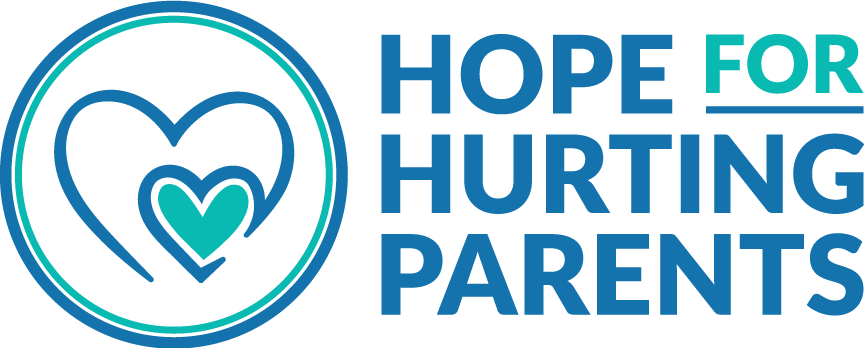
photo cred. Claudia Wolff
This is part 5 in a series on mental illness, also called brain disorders. As a parent who once knew nothing about mental illness before my daughter, now thirty seven, was diagnosed, I began to gather information to help both myself and others who are on a similar difficult journey. If you need help understanding Borderline Personality Disorder (BPD), I hope this will help.
May was Mental Health Awareness Month, but we need help understanding these issues anytime. So far I’ve addressed Bipolar Disorder, Panic Disorder, and Schizophrenia. You can access these posts by doing a search on the blog but they were posted the last 4 Mondays in a row.
As I already mentioned, this week’s topic is Borderline Personality Disorder. I’m not an expert, so I turned to the best resource in the field, the National Alliance on Mental Illness, nami.org. On their website you will find many additional articles on each of these disorders and much more.
The following information was written by Ken Duckworth, M.D.
Borderline Personality Disorder (BPD) is characterized by impulsivity and instability in mood, self-image, and personal relationships. BPD is diagnosed more often in females than in males. Presenting similarly to biploar, BPD can be difficult to accurately diagnose, especially if the person self-medicates with alcohol or drugs.
Symptoms
Individuals with BPD experience several of the following symptoms:
- Marked mood swings with periods of intense depression, irritability, and/or anxiety lasting a few hours to a few days.
- Anger that is intense, uncontrolled and/or not understood.
- Impulsiveness in spending, sex, substance abuse, shoplifting, reckless driving, or binge eating.
- Recurring suicidal threats or self-injurious behavior.
- Unstable, intense personal relationships with intense, categorical views of people and experiences, sometimes alternating between “all good” idealization and “all bad” devaluation.
- Marked, persistent uncertainty about self-image, long-term goals, friendships, and values.
- Chronic boredom or feelings of emptiness.
- Frantic efforts to avoid abandonment, either real or imagined.
Causes
The causes of BPD are unclear, although psychological and biological factors may be involved. Originally thought to “border on” schizophrenia,

photo cred.Ashley Byrd
BPD also appears to be related to major depressive illness. In some cases, neurological disorders play a role. Biological factors may cause mood instability and lack of impulse control, which in turn may contribute to troubled relationships. Difficulties in psychological development during childhood, perhaps associated with neglect, abuse, or inconsistent parenting, may create identity and personality problems. More research is needed to clarify the psychological and/or biological factors causing BPD. The field is also actively looking at genetic vulnerabilities.
Treatment
A combination of psychotherapy and medication appears to provide the best results for treatment. Medications can be useful in reducing anxiety, depression, and disruptive impulses. Relief of such symptoms may help the individual deal with harmful patterns of thinking and interacting that disrupt daily activities.
Long-term outpatient psychotherapy and group therapy (if the individual is carefully matched to the group) can be helpful. Short-term hospitalization may be necessary during times of extreme stress, impulsive behavior, or substance abuse. More structured cognitive interventions like dialectical behavioral therapy (DBT) are now widely used.
BPD may be accompanied by serious depressive illness (including bipolar disorder), eating disorders, and alcohol or drug abuse. It’s critical to determine this prior to treatment. About 50 percent of people living with BPD experience episodes of serious depression. At these times, the “usual” depression becomes more intense and steady, and sleep and appetite disturbances may occur or worsen. These symptoms, and the other illnesses mentioned above, may require specific treatment. A neurological evaluation may be necessary for some individuals.
Medication
Antidepressants, anticonvulsants, and the new atypical antipsychotics are commonly part of the treatment for BPD. Decisions about medication should be made cooperatively between the individual and their health care provider. Issues to be considered include the person’s willingness to take the medication as prescribed, and the possible benefits, risks, and side effects, particularly the risk of overdose. (This is where Dr. Duckworth’s article ends.)
Recovery
Most people living with BPD who are engaged in a personalized treatment plan that includes effective medication and other treatment supports like counseling, find that symptoms are reduced enough to help achieve fulfilled recovery. We need to remember this. There is hope!
BPD is a disorder of emotional dysregulation which can be difficult to diagnose. It affects between 1% and 2% of the general population and impacts the individual’s family and work. This brain disorder rarely stands alone, with high frequency of co-occurring disorders (other mental illnesses).
Several organizations offer education programs and/or support to families challenged with mental health issues: The National Alliance on Mental Illness (NAMI), The National Education Alliance for Borderline Personality Disorder (NEA-BPD), The Depression and Bipolar Support Association (dbsalliance.org) and the Mental Health Association(MHA) for your city/county offer programs across the nation. Most states and some cities have their own chapters.
Family training and support programs like NAMI’s Family to Family and NEA-BPD’s Family Connections (www.neabpd.org) are in high demand. They’re availabe online as well as in-person. Through these resources a lot of support is available that didn’t exist ten years ago. My husband and I benefited greatly by taking the Family to Family class. It helped us better understand our daughter and gain more compassion for her struggles. We also got to know other families who were going through something similar.
KEEP YOUR EYES ON GOD

photo cred. Janet Plock
Dear friend, this is a lot of information to process. You may feel overwhelmed and frightened, but please keep your eyes on God. Ultimately, He’s your source of help and hope, courage and strength, endurance and stamina. With Him–somehow–you will be okay. You can pile stone on top of stone as you call out his many attributes that you can depend on.
If your loved one is resistant to taking medication or cooperating with treatment, a great book you need to read is I Am Not Sick, I Don’t Need Help by Dr. Xavier Amador. His website offers videos of people using his highly effective LEAP method. He has trained thousands of professonals and first responders all over the world. leapinstitute.com
Another book written to help understand Borderline Personality Disorder is: Walking on Eggshells by Mason Kreger.
One more invaluable resource started by a pastor who had bipolar disorder is Fresh Hope. They offer faith-based help and support for individuals and their loved ones who suffer with a mental illness.
Be encouraged by these Scriptures:
May your unfailing love be with us, Lord, even as we put our hope in you (Psalm 33:22, NIV).
Our help is in the name of the Lord, the Maker of heaven and earth (Psalm 124:8, NIV).

My granddaughter was recently diagnosed with the dysfunctional deregulation and then was diagnosed with BPD which I find on Target with her symptoms… She is a patient of a really good psychiatrist with gracepoint in Tampa… I find this article on target as well for everything that I have learned since February 2022.. seems to be a lot of good information that I will definitely check into..
Thank you for your comment, Carolyn. I am so glad you found the article to be helpful and I’m so sorry about your granddaughter’s struggles. That’s so good she’s getting great care fro a good psychiatrist. This will make all the difference, especially if she is a willing participant in her care. You and she and her parents will find some wonderful support from the ministry I mentioned, Fresh Hope.
God bless and uphold you as you offer unconditional love and understanding to your granddaughter.
In His love,
Dena
I just finished reading your book You Are Not Alone and it was such an encouragement to me, as we have been struggling with our adopted daughter who is 23 for over 5 years. She has BPD, major depression, anxiety, and drug and sexual abuse. Her biological parents struggled with similar problems and both biological parents died young. My husband and I are getting counseling even though our daughter refuses. She thinks she can get well on her own without counseling or medication. Her latest boyfriend is in prison and has had at least 10 years of mental illness and drug use. I want to get a copy of your book for his mother. Thank you so much for sharing your story.
Denise, thank you for your compliment on my book and that you want to get it for your daughter’s boyfriend’s mother. Sounds like she needs it too. I pray she will be helped by it as you have been. I am so sorry for the struggle with your daughter. How hard to not be able to help her, but she is on her own journey of learning how to care for herself. I hope she soon realizes there is no shame in admitting you have a need or in getting help for it. May God strengthen and encourage you, and your husband, as you stay strong in the Lord, learn all you can about her issues, and remain united in your relationship.
I’s also like to encourage you to try one of our support groups. It made a huge difference for us. The info is on our website uner “support groups” – online is great too. Let me know if you have any questions: hope@hopeforhurtingparents.com
Our help is in the name of the Lord.
Dena